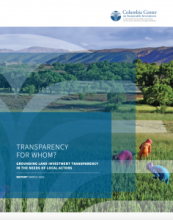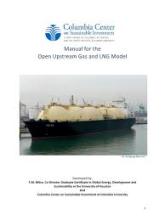Land Library Search
Through our robust search engine, you can search for any item of the over 73,000 highly curated resources in the Land Library.
If you would like to find an overview of what is possible, feel free to peruse the Search Guide.
/ library resources
Showing items 1 through 9 of 14.New research by CCSI and the Centre pour l’Environnement et le Développement (CED) on transparency of land-based investment in Cameroon.
In the report, CCSI and CED find that:
Transparency is often seen as a means of improving governance and accountability of investment, but its potential to do so is hindered by vague definitions and failures to focus on the needs of key local actors.
The Corruption Perceptions Index 2019 reveals a staggering number of countries are showing little to no improvement in tackling corruption. Our analysis also suggests that reducing big money in politics and promoting inclusive political decision-making are essential to curb corruption.
This document provides practical guidance to address the taxation of Indirect Transfers of assets of extractive industries. It focuses on issues that developing country governments may wish to consider if they adopt a policy to tax such transfers.
This manual has been developed for training purposes. It models the gas value chain from the upstream project to the use of gas under the form of LPG, LNG or as feedstock for local industrial or power generation uses.
This paper provides guidance on how to integrate consultation and FPIC principles into investor-state contract negotiations to actively involve project-affected communities and better safeguard their land rights and human rights.
This guide aims to assist non-lawyers to better understand investment contracts that concern forestry projects. These "forestry contracts" can be complex, and some provisions may be difficult to understand.
The Global Corruption Barometer 2013 draws on a survey of more than 114,000 respondents in 107 countries. It addresses people’s direct experiences with bribery and details their views on corruption in the main institutions in their countries.









